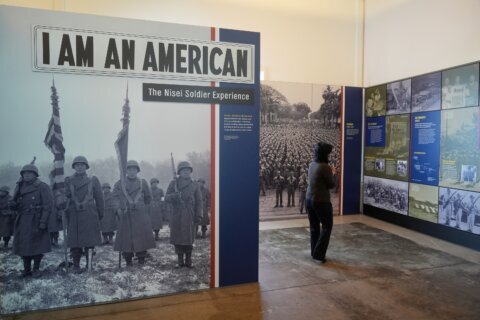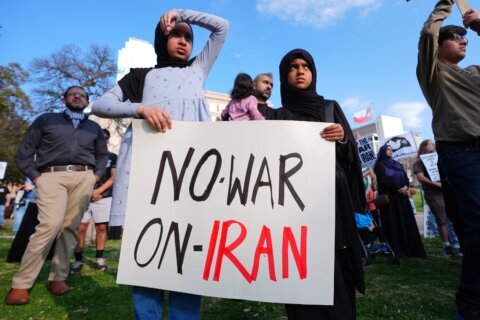Contrary to the popular perception that love typically sparks from passion, a new study finds two-thirds of romantic relationships begin as long-term friendships.
Though highly prevalent, the friends-to-lovers pathway to a relationship has been largely overlooked by science, said Danu Stinson, lead author of the study and an associate professor of psychology at the University of Victoria in British Columbia, Canada.
Stinson has studied relationship initiation for 20 years, and she noticed over the years that many participants reported they were forming romantic bonds with friends they had known for a while. She began asking the question, “Were you friends with your partner before you became romantically involved?” in her other research and conducted a meta-analysis for this paper.
“Very few studies are really looking at this friends-first relationship initiation, despite our observation that it’s the most common form of relationship initiation by far,” Stinson said.
She expected friends-first initiation to be common, but she was surprised at how dominant it was in the research. The prevalence of friends-first relationships was also consistent across ages and ethnic groups.
The study: Friends-first relationships ‘prevalent and preferred’
The research, published last week in the journal Social Psychological and Personality Science, comprises four different studies on relationship initiation.
The first two studies analyzed popular journals and textbooks and found that the existing literature on relationship initiation overwhelmingly focuses on “romance that sparks between strangers” and largely overlooks “romance that develops between friends,” the paper says.
The researchers then conducted an analysis of seven of their lab’s studies with university students and adults of all ages, consisting of almost 1,900 people in Canada and the United States. The online studies were done between 2002 and 2020 for other purposes, and the data used for this analysis came from demographic information about the participants.
That analysis found that 66% of couples began as friendships, many of them long-term friendships spanning several months or years.
In the final study, which only looked at 300 university students, the “friend stage” lasted almost 22 months on average before turning romantic. Almost half of this sample said friends-first initiation was their preferred method of beginning a romantic relationship. However, the vast majority of the sample did not enter their friendships with the intention of a romantic relationship.
The research also found that LGBTQ participants in relationships reported even higher rates of friends-first initiation than those in heterosexual relationships, though the authors note a much smaller proportion of LGBTQ participants in the latter two studies.
These findings should prompt people to rethink their preconceived notions about relationships that often stem from “dominant dating scripts in our culture,” Stinson said.
“Dating scripts really say that you’re going to meet somebody, and a flash of lightning will strike you,” Stinson said. “I think if you really believe in that dating script, then it’s hard to imagine another situation” where you become closer with a friend and start a romantic relationship.
‘Friends with benefits’
An additional finding, Stinson said, was that the lines between friendships and relationships are not as clear as some may think. Of the married couples in the study, two-thirds said they were friends before becoming a couple, but many of the couples also said they were “friends with benefits,” or friends who engage in sexual activity, before being in a fully committed romantic relationship.
Many of the participants were engaging in intimate behaviors typically thought of as romantic with their friends, Stinson said.
“They’re cuddling by the fire, they’re going on trips together, they’re introducing their friends to their family, but they’re very clear that those are friendships,” Stinson said. “It really makes me think about the definitions that we have about friendship and romance, and how those things differ, and I just like how messy it all is.”
Joanne Davila, a professor of clinical psychology and director of the Relationship Development Center at Stony Brook University’s department of psychology who was not involved in the study, said the paper highlights the need to do additional research on the friends-to-lovers pathway.
“What I really like about this paper is that they are bringing to light and challenging assumptions that relationships researchers have just kind of always had,” Davila told CNN. “I like that they’re sort of saying we need to open our minds and think more broadly about relationships.”
Researchers should look into the differences between friends-first and dating initiation relationships, Davila said, and see if one produces healthier and stronger relationships over the other. Davila is also interested in what happens when friends-first relationships end, considering that the individuals may still be in the same friend group after a break-up.
“We need to ask a lot more questions about who people are in relationships with and how they got there,” Davila said. “That could be a really important factor in how we understand relationships.”
Stinson has begun exploring the ways in which friends transition into romantic relationships by analyzing couples’ firsthand written accounts of the start of their relationships. She and her team want to see how these stories may be different, how people make the decision to act on romantic feelings for a friend, the order in which certain milestones occur and more.
Stinson said she plans to conduct longitudinal studies in which researchers follow friend pairs for several years to see if romantic relationships form between some of them, and what circumstances may lead to a romantic connection between friends.







